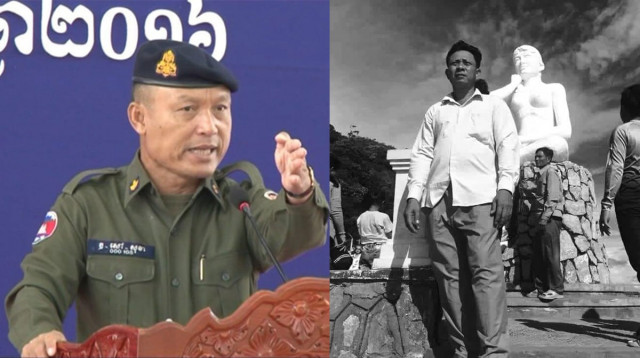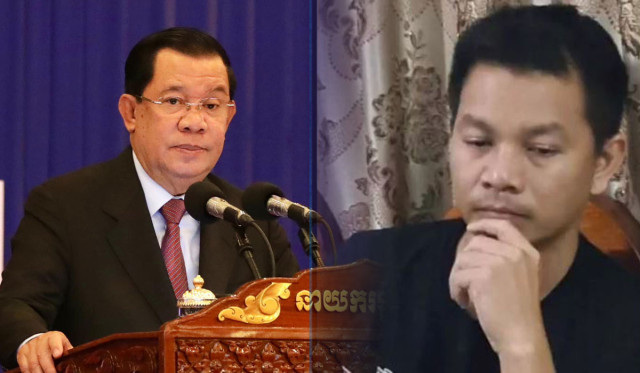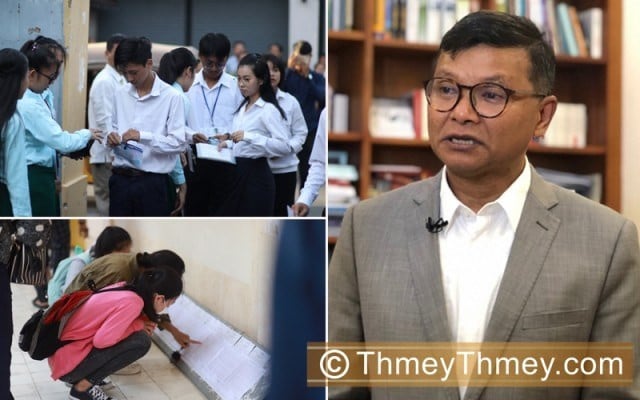Poor See Bright Future from Free Training
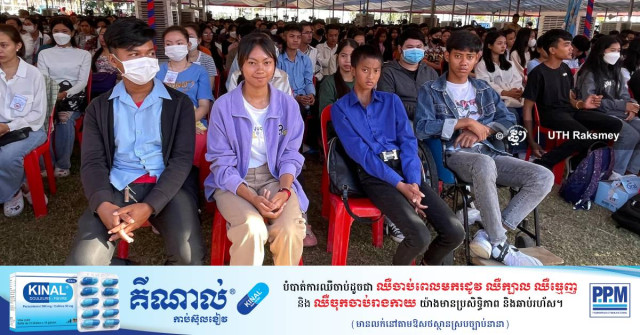
- By Nhek Sreyleak
- and Uth Raksmey
- January 17, 2024 11:55 AM
PHNOM PENH – More than 20,000 poor and vulnerable people have registered for a free training program which aims to equip them with skills needed for a better life.
The four-month program officially kicked off on Jan. 15 at the National Polytechnic Institute of Cambodia (NPIC), a major state-run training center.
The government hopes that up to 1.5 million people will eventually take part in the training in skills ranging from construction, electricity, electronics, mechanics, tourism, services, agriculture, agro-industry and business to information technology.
Participants are pinning their hopes on the program to gain skills that bring them a bright future.
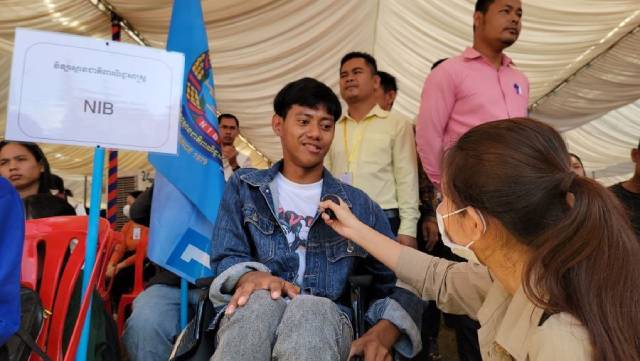 Rorn Kakada, who has a disability, is studying graphic design in the program at NPIC. Photo: ThmeyThmey
Rorn Kakada, who has a disability, is studying graphic design in the program at NPIC. Photo: ThmeyThmeyRorn Kakada, who has a disability, is studying graphic design in the program at NPIC. He stopped studying at grade 10. He said that he had wanted to learn this skill but couldn’t do it due to his family poverty and his mobility issues.
“Graphic design only requires me to sit in one place. It suits my condition,” he said.
“After I graduate, I can work and have income.”
The program applies not only to the young and vulnerable. Kakada, Ek Sido, 56, is also taking part as a phone repair trainee at NPIC.
He said he wanted to have this skill because he’s old and can’t do heavy work. He expected that with this skill, he could earn income.
“I was afraid at first that I wouldn’t be accepted since I’m old, yet the school allowed me. I’ll try my best.”
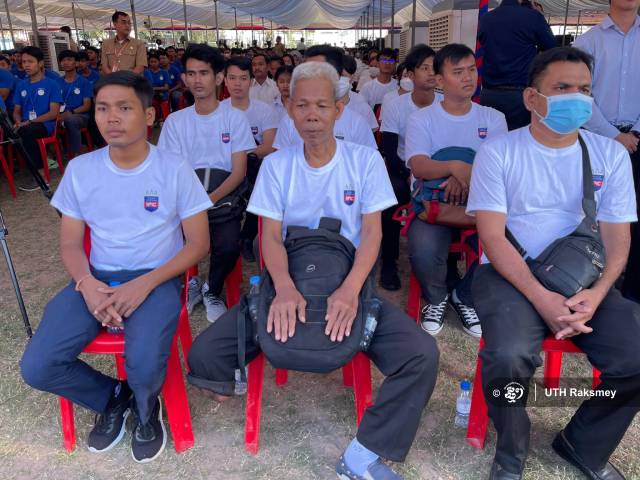 Ek Sido (C) takes part as a phone repair trainee at NPIC. Photo: Uth Reaksmey
Ek Sido (C) takes part as a phone repair trainee at NPIC. Photo: Uth ReaksmeyYos Kunveary and son Yos Kakada are also trainees who chose phone repairing. Kunveary, 65, decided to participate after the school let her join her son.
She said she joined the program because she too wanted to have a skill and did not want to waste her time.
While repairing phones might require English and knowledge of technology, she said English was not a problem for her because she knew enough of the language.
“What’s important is that we must try and pay attention in class,” she said.
Human resources development is one of the priorities for the government to boost the economy and to become a higher-middle income country by 2030 and a high-income country by 2050.
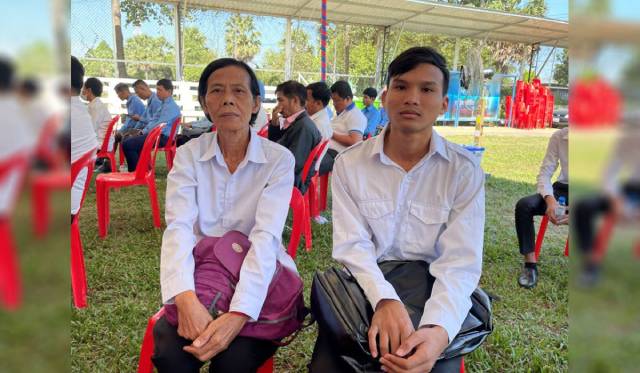 Yos Kunveary and son Yos Kakada are also trainees who chose phone repairing. Photo: ThmeyThmey
Yos Kunveary and son Yos Kakada are also trainees who chose phone repairing. Photo: ThmeyThmeyPech Bolene, an adviser to the Ministry of Labor, said providing vocational training to people, particularly the poor, will help boost the economy.
“We see this vocational training as the core and an important foundation for our economic development especially the informal economy,” he said.
“Training programs include new skills due to the context of business transformation. So, no matter what age, there is no end to education.”
Bolene also praised the older trainees who are aspiring to participate in this program.
Originally written in Khmer for ThmeyThmey, this article was translated by Torn Chanritheara for Cambodianess.






